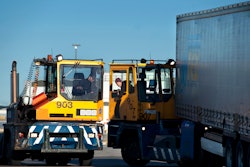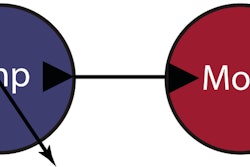Volvo Penta of the Americas announces the introduction of automatic start/stop as an option for its industrial diesel engines. The company estimates the function can achieve fuel savings of 5% or more by switching the engine off when idling.
“Automatic start/stop is becoming increasingly common in private cars, switching off the engine to save fuel at stop lights or when idling in a queue,” says Ron Huibers, President of Volvo Penta Region Americas. “Volvo Penta is now offering the same functionality for industrial engines.”
“Fuel consumption is by far the biggest cost for operators of industrial equipment in areas such as material handling, construction and mining,” Huibers continues. “When fuel can represent up to 90% of the machine’s lifetime operating costs, a reduction of up to 5% in fuel consumption is extremely valuable.”
The automatic start/stop function works in the same manner as in a private car. When the machine’s engine is idling, it turns itself off after a pre-set time, usually 5 to 10 seconds. When the driver activates any of the machine’s controls, the engine starts immediately, and the work can continue. The optional start/stop capability can be deactivated or reactivated as needed.
In addition to reducing operational costs through lower fuel consumption, automatic start/stop improves the environment by lowering emissions to the surrounding air. And since a stopped engine is a quiet engine, it also means reduced noise levels, which benefit the surroundings and all the people working at the site.
“Improving the environment is one of the core values of Volvo Penta,” says Huibers. “The introduction of automatic start/stop is part of our ongoing efforts to improve our engines’ fuel efficiency and reduce emissions, while at the same time optimizing performance and minimizing downtime on the job.”

















